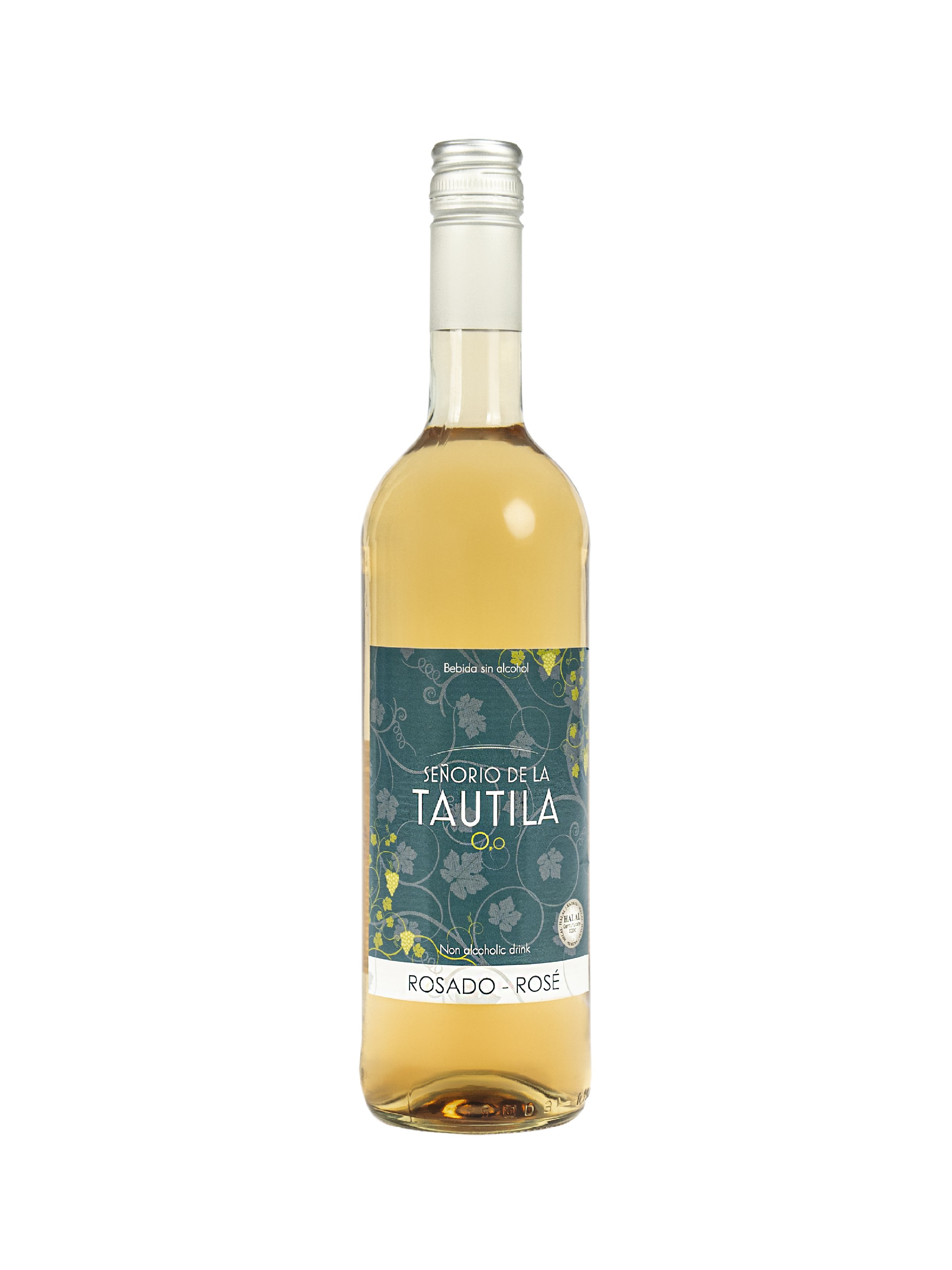 Image 1 of
Image 1 of


Tautila Rosado
Señorío de la Tautila Rosado is made from Airén grapes grown in the vineyards of La Mancha, where it ferments into a high-quality wine that is de-alcoholized just before bottling. This process preserves its organoleptic characteristics while removing only the alcohol and calorie content, resulting in a rosé wine with generous fruity and floral expressions and exceptional freshness. It is made using the same grape as the red wine but spends less time in contact with the grape skins.
Visual phase: Pale pink wine with light intensity.
Olfactory phase: A surprising presence of fruity and floral aromas creates a fresh and highly pleasant sensation.
Taste phase: Fresh and light, with a smooth passage on the palate.
It pairs well with rice dishes, fish, cold starters, or as a delightful accompaniment to any appetizer.
Technical details:
Grape: Tempranillo
Alcohol content: 0.0% by volume
Ideal serving temperature: 14º - 17ºC
Calories per glass (100 ml): Approximately 22
The de-alcoholization of Señorío de la Tautila Tempranillo is carried out using a low-temperature vacuum distillation process, the most traditional and gentle of all de-alcoholization methods.
Through this sophisticated process, the fermented wine is handled in stainless steel tanks under strictly controlled conditions, without exposure to aggressive temperature or pressure.
This "deconstruction" minimizes the risk of losing the wine’s aromatic components, ensuring the preservation of its natural qualities.
Señorío de la Tautila Rosado is made from Airén grapes grown in the vineyards of La Mancha, where it ferments into a high-quality wine that is de-alcoholized just before bottling. This process preserves its organoleptic characteristics while removing only the alcohol and calorie content, resulting in a rosé wine with generous fruity and floral expressions and exceptional freshness. It is made using the same grape as the red wine but spends less time in contact with the grape skins.
Visual phase: Pale pink wine with light intensity.
Olfactory phase: A surprising presence of fruity and floral aromas creates a fresh and highly pleasant sensation.
Taste phase: Fresh and light, with a smooth passage on the palate.
It pairs well with rice dishes, fish, cold starters, or as a delightful accompaniment to any appetizer.
Technical details:
Grape: Tempranillo
Alcohol content: 0.0% by volume
Ideal serving temperature: 14º - 17ºC
Calories per glass (100 ml): Approximately 22
The de-alcoholization of Señorío de la Tautila Tempranillo is carried out using a low-temperature vacuum distillation process, the most traditional and gentle of all de-alcoholization methods.
Through this sophisticated process, the fermented wine is handled in stainless steel tanks under strictly controlled conditions, without exposure to aggressive temperature or pressure.
This "deconstruction" minimizes the risk of losing the wine’s aromatic components, ensuring the preservation of its natural qualities.
Señorío de la Tautila Rosado is made from Airén grapes grown in the vineyards of La Mancha, where it ferments into a high-quality wine that is de-alcoholized just before bottling. This process preserves its organoleptic characteristics while removing only the alcohol and calorie content, resulting in a rosé wine with generous fruity and floral expressions and exceptional freshness. It is made using the same grape as the red wine but spends less time in contact with the grape skins.
Visual phase: Pale pink wine with light intensity.
Olfactory phase: A surprising presence of fruity and floral aromas creates a fresh and highly pleasant sensation.
Taste phase: Fresh and light, with a smooth passage on the palate.
It pairs well with rice dishes, fish, cold starters, or as a delightful accompaniment to any appetizer.
Technical details:
Grape: Tempranillo
Alcohol content: 0.0% by volume
Ideal serving temperature: 14º - 17ºC
Calories per glass (100 ml): Approximately 22
The de-alcoholization of Señorío de la Tautila Tempranillo is carried out using a low-temperature vacuum distillation process, the most traditional and gentle of all de-alcoholization methods.
Through this sophisticated process, the fermented wine is handled in stainless steel tanks under strictly controlled conditions, without exposure to aggressive temperature or pressure.
This "deconstruction" minimizes the risk of losing the wine’s aromatic components, ensuring the preservation of its natural qualities.

Ingredients
It all begins with an idea. Maybe you want to launch a business. Maybe you want to turn a hobby into something more. Or maybe you have a creative project to share with the world. Whatever it is, the way you tell your story online can make all the difference.